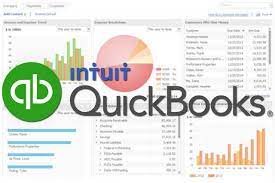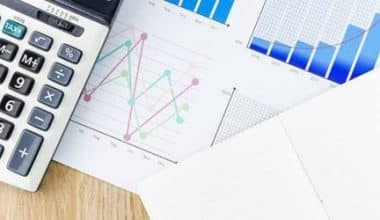Both cash accounting and accrual accounting have advantages and disadvantages, but once you choose an accounting method, it is critical to use it consistently. So, how do you determine which accounting method is best for your company? If you’re going to be bound by the accounting method you choose, you should make the best decision possible. This guide provides an overview of each cash basis accounting method, the differences between cash accounting vs accrual accounting, and an example of cash accounting.
What Is Cash Accounting (CA)?
Cash accounting is a method of accounting in which payment receipts are recorded in the period of receipt and expenses are recorded in the period of payment. In other words, when cash is received or paid, revenues and expenses are recorded.
Cash accounting, also known as cash-basis accounting, differs from accrual accounting in that it recognizes income when revenue is earned and records expenses when liabilities are incurred, regardless of when cash is received or paid.
Who Uses Cash Basis Accounting?
Cash basis accounting is used by many self-employed professionals and small-business owners. What’s the reason? It is the most basic accounting method. Cash basis accounting also provides a quick snapshot of how much money the company has on hand. That is a critical metric for any business.
While cash basis accounting is appropriate for many smaller, younger businesses, it is not appropriate for all. Most smaller businesses that carry inventory will need to use accrual accounting to track inventory changes. Most businesses that provide credit will also need to use accrual accounting.
Cash Accounting Example
Assume Company A receives $10,000 from the sale of ten computers to Company B on November 2 and records the sale as having occurred on November 2. Even though Company B placed the order for the computers on October 5, payment wasn’t made until November 2.
In contrast, under accrual accounting, Company A would have recorded the $10,000 sale on October 5, even though no cash had changed hands.
Similarly, in cash accounting, expenses are recorded when they are paid rather than when they are incurred. Under CA, if Company C hires Company D for pest control on January 15 but does not pay the invoice for the completed service until February 15, the expense is not recognized until February 15. However, under accrual accounting, the expense would be recorded in the books on January 15, the date it was incurred.
Cash Accounting Advantages and Disadvantages
Different accounting methods appeal to different businesses for different reasons. So, here are the benefits and drawbacks of the cash accounting method:
Advantages of Cash Accounting
Cash-based accounting has numerous advantages for small businesses.
#1. The Simpleness of Use:
CA is popular due to its ease of use, making it ideal for small businesses and sole proprietors who can handle their accounting with just a pen and notebook.
#2. Improved Cash Flow Projections:
Because the entire accounting and financial reporting system is based on cash flow, CA can provide a more accurate picture of it. Complex accrual-based systems frequently lose that clarity.
#3. Tax Benefits:
By timing your transactions, you can take advantage of significant tax breaks if you only record business income and expenses when cash changes hands. Accelerate expenses or slow revenues to temporarily reduce your tax liabilities.
Disadvantages of Cash Accounting
CA has some obvious drawbacks that make it unsuitable for certain types of businesses.
#1. Inaccurate and Misleading Reporting:
A business owner can show a profit by not paying bills for some time, even though those expenses have been incurred. This makes the system vulnerable to abuse and makes it preferable for personal tracking over an assessment by an investor or bank.
#2. Inventory Control:
Inventory is treated as an expense in CA. It is not considered an asset until it is sold for cash. This can skew your figures, particularly for businesses with capital invested in inventory or those who hold inventory for extended periods. With certain exceptions, the IRS prohibits businesses that keep inventories from using the cash method of accounting.
Cash Accounting vs Accrual Accounting
The primary distinction between accrual and cash basis accounting is the timing of revenue and expense recognition. The cash method recognizes revenue and expenses immediately, whereas the accrual method focuses on anticipated revenue and expenses.
Accrual Accounting
Revenue is accounted for when it is earned under this method. In contrast to the cash accounting method, the accrual method records revenue when a product or service is delivered to a customer with the expectation of future payment. To put it another way, money is accounted for before it is received. Similarly, costs for goods and services are recorded before any cash is paid for them.
Cash Basis Accounting
Revenue is reported on the income statement only when cash is received under this method. Expenses are only recorded when cash is paid out. Small businesses or individuals typically use cash as a payment method.
Important Distinction
The distinction between cash vs accrual accounting is in the basis on which sales and purchases are recorded in your accounts. CA only records revenue and expenses when money is exchanged, whereas accrual accounting records revenue when it is earned and expenses when they are billed (but not paid).
We’ll go over both methods in-depth and see how they affect your business.
Accrual Method
The accrual method records account receivables and payables and, as a result, can provide a more accurate picture of a company’s profitability, particularly over time.
For example, a company’s sales in the current quarter might not be recorded using the cash method. The revenue is expected in the following quarter. An investor may believe the company is unprofitable when, in fact, it is profitable.
The accrual method does not account for cash flow. A company may appear to be profitable in the long run, but it may have a significant cash shortage in the short term.
Another disadvantage of the accrual method is that it can be more difficult to use because it requires accounting for items such as unearned revenue and prepaid expenses. It may also necessitate the hiring of additional personnel.
The accrual method is typically required for companies that file audited financial statements and is accepted under the Financial Accounting Standards Board’s generally accepted accounting principles (GAAP) (FASB).
Cash Basis Method
The cash method’s main advantage is its simplicity—it only accounts for cash paid or received. It is also simpler to track a company’s cash flow. It is advantageous to sole proprietorships and small businesses because it is unlikely to necessitate the hiring of additional personnel (and thus incur additional costs).
However, the cash basis method may overstate the health of a cash-rich company. This is because it does not record accounts payables that may exceed the company’s cash on hand and current revenue stream.
As a result, an investor may conclude that the company is profitable when, in fact, the company is experiencing financial difficulties. The cash basis method is not permitted by GAAP.
Example of Accrual Accounting vs. Cash Basis Accounting
Assume you own a company that sells machinery. Under the cash method, if you sell $5,000 in machinery, the amount is not recorded in the books until the customer hands you the money or you receive the check.
The $5,000 is recorded as revenue on the day the sale was made under the accrual method, even though you may receive the money a few days, weeks, or even months later.
The same holds true for expenses. Under the cash method, if the company receives a $1,700 electric bill, the amount is not recorded until the bill is paid. The accrual technique treats the $1,700 as an expense on the date the corporation actually pays the bill.
What do you mean by cash accounting?
CA is a method of accounting in which payment receipts are recorded in the period in which they are received and expenses are recorded in the period in which they are paid.
What is cash accounting vs accrual?
When cash flows into or out of a business, CA reflects the transaction on the company’s financial statements. Accrual accounting records revenue when it is earned and expenses when they are incurred, regardless of when the money is exchanged.
Who uses cash accounting?
The two methods of financial reporting are cash and accrual accounting. CA is used by individuals, small businesses, and sole proprietorships to record revenues and expenditures when money is exchanged. Accrual accounting maintains that credits and debits exist even when no monetary transaction occurs.
What type of accounting is cash?
CA, also known as cash-basis accounting, differs from accrual accounting in that it recognizes income when revenue is earned and records expenses when liabilities are incurred, regardless of when cash is received or paid.
What are examples of cash accounts?
A company bills a customer $10,000 on October 15 for services rendered and receives payment on November 15. The cash receipt date, which is November 15, is used to record a sale. Similarly, on July 10, the company receives a $500 invoice from a supplier and pays the bill on August 10.
What is the advantage of cash accounting?
The Benefits of CA:
The primary advantage of using CA practices is their simplicity. You do not need a graduate degree to add and subtract income and payments. All the math is simple, there is no need to track accounts receivable and payable, and the ledger is simple to read.
Set Up the Correct Accounting Software for Your Company.
While the cash basis accounting method is simpler, it may limit your ability to make more predictive business decisions. As your company grows, you may need to consider switching from the cash to the accrual method. Before making any changes, weigh the benefits and drawbacks of each method with your specific business in mind. Remember that online accounting software can be useful in establishing your preferred accounting method.
Conclusion
You can now determine which accounting method is best for your company. You should make the best decision possible as this guide provides an overview.
Cash Accounting FAQs
How do you calculate cash accounting?
Add up all of these amounts on the last day of an accounting period to calculate the amount of cash your business has at the end of that period. If you have foreign currency, the amounts must be converted into US dollars as of the date of your cash statement.
Why is cash Important in accounting?
A business’s lifeblood is cash, and it must generate enough cash from its operations to cover its expenses while also having enough left over to repay investors and grow the business. While a company’s earnings can be manipulated, its cash flow provides insight into its true health.
Is cash an asset or a liability?
In a nutshell, cash is a current asset and the first item on a company’s balance sheet. Cash is the most liquid asset and can be easily used to purchase other assets.
- ACCRUAL ACCOUNTING: A SIMPLIFIED GUIDE FOR BEGINNERS (+Detailed examples)
- INSURANCE SALES REPRESENTATIVE: How To Become An Insurance Sales Representative In 2022
- Direct Method Cash Flow: Definition, Examples & Advantages
- Cash Flow Statement Direct Method: Overview, Examples, Pros & Cons
- Small Business Accounting UK: Best 2022 Practices & All You Need






